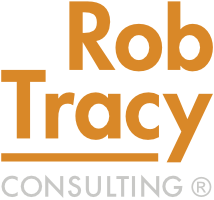The Supervisor’s job has grown over the years. It used to be mostly about meeting the production schedule and making sure all the machines are running. Now they also need to work on scheduling issues, attend multiple meetings, support Lean and Continuous Improvement efforts, lead problem-solving meetings, be part of project teams, address endless emails, etc…
What if they started learning some of these skills BEFORE they are actually asked to take on the Supervisor role? Imagine having a pipeline of talent starting with your operators, through your Leads and into Supervisors.
How do you do this?
- Look for potential leaders within your operators. They may or may not be the best machine operators you have. What you do see from them is that they:
- Show initiative
- Demonstrate a willingness to put themselves out there
- Come forward with possible solutions, not just problems they expect others to fix
- Naturally see connections between things
- Notice when someone is struggling. They step in and help, without making the person feel stupid.
For example, a 3rd shift Lead I met recently participated in two different training sessions I was conducting. In both sessions, as I noticed a participant with a questioning look on his face, this individual was already leaning over, asking him good questions and patiently helping the participant get the point of the learning exercise.
- Once you identify these potential leaders, have them start doing other activities besides running their machines. I recommend starting with just one thing, such as:
- Participate in a Kaizen event
- Be on the Safety Committee
- Lead a 5S effort in his/her area
- Participate in a Continuous Improvement project team
For example, in one manufacturing company I worked for, I facilitated a team of operators from one department. Though the team created many positive results, I remember one in particular. One operator took on only one task besides running his machine – ordering the safety supplies for the department. This was a very important job as they worked in an area with potentially harmful chemicals. There were times in the past the safety equipment did not get ordered. Now, it was always ordered on time and it took a duty off the already too busy Supervisor. The operator was very proud to have this responsibility and was much more engaged in the day-to-day work.
- For those where Step 2 is successful and they want more, make them a Lead. Create the Lead position as a stepping stone to Supervisor or other possible positions. Help them learn how to manage work, train others, delegate to build the skills of others, etc.
- If they show more potential, there are a variety of roles I have seen individuals at this stage be promoted into including a Supervisor, Eng. Tech., Quality Tech and a Junior Purchasing Agent.
Building skills over time takes support. When we give people a work opportunity, we need to set them up for success:
- Clearly define the opportunity.
- Tell them why you are inviting them to do it and that you believe in their ability to do this.
- Listen to their ideas and coach them on this opportunity.
- Follow-up with them after the opportunity to learn from them how it went and get their ideas on how they might do it even better next time.
Taking on the Supervisor role and being successful at it will be so much easier when they come to the job with many of the skills already in place.
About the author: Gayle Noakes spent 20 years working in manufacturing companies. She now owns Gayle Noakes Supervisor Success, working with manufacturing companies to build the skills of their front-line Supervisors.
